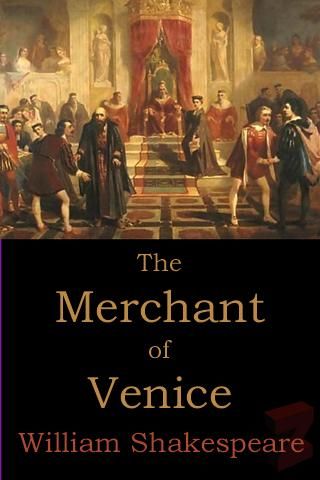
The Merchant of Venice
Author: William Shakespeare Category: Drama Publisher: Red Globe Press Published: September 29, 1988 Language: English File Size: 15 MB Tags: comedy | drama | Plays |Theme:
The Merchant of Venice by William Shakespeare, explores the theme of:
- Money – the significance of wealth and how it can affect people and relationships
- Justice – the idea of what is fair and how this can differ from person to person
- Love – romantic love, family relationships and the love between friends feature in the play.
Summary:
Antonio, an antisemitic merchant, takes a loan from the Jew Shylock to help his friend to court Portia. Antonio can’t repay the loan, and without mercy, Shylock demands a pound of his flesh. The heiress Portia, now the wife of Antonio’s friend, dresses as a lawyer and saves Antonio.
Famous Quotes:
“By my soul I swear, there is no power in the tongue of man to alter me.”
“He hath disgraced me, and hindered me half a million; laughed at my losses, mocked at my gains, scorned my nation, thwarted my bargains, cooled my friends, heated mine enemies; and what’s his reason? I am a Jew.”
“By my soul I swear There is no power in the tongue of man To alter me.”
“The devil can cite Scripture for his purpose.”
“The quality of mercy is not strain’d, It droppeth as the gentle rain from heaven Upon the place beneath: it is twice blest; It blesseth him that gives and him that takes.”
“But love is blind and lovers cannot see The pretty follies that themselves commit”
“An evil soul producing holy witness Is like a villain with a smiling cheek, A goodly apple rotten at the heart. O what a goodly outside falsehood hath!”
“I am not bound to please thee with my answers.”
“You speak an infinite deal of nothing.”
“With mirth and laughter let old wrinkles come.”
“If to do were as easy as to know what were good to do, chapels had been churches and poor men’s cottages princes’ palaces. It is a good divine that follows his own instructions: I can easier teach twenty what were good to be done, than be one of the twenty to follow mine own teaching.”
Back
